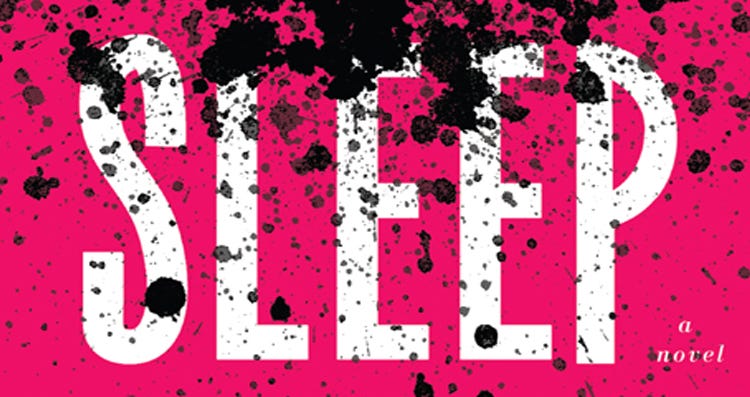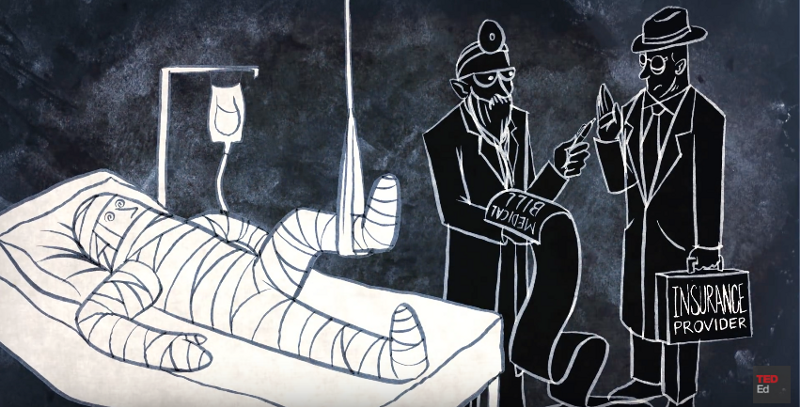interviews
Bruce Bauman’s Broken Sleep Is a Subversive Rock n’ Roll Time Trip
Bruce Bauman takes on truth, art, and DNA in his postmodern saga, Broken Sleep.

Broken Sleep, Bauman’s second novel from Other Press (after 2006’s And the Word Was), encompasses the disparate concepts of art, Nazi history, musical fame, politics, DNA time travel, and insanity. This twisted, canny tale spans the decades between the 1950s and 2000s. Moses Teumer, a professor suffering from leukemia, goes looking for his real parents to find a bone marrow match. He discovers his mother, Salome Savant, was a young artist impregnated by a rumored Nazi; Salome was told after Moses’ birth that he was dead while he was skirted away in a quick adoption. When Moses finds Salome, he also discovers he has a half-brother, Alchemy Savant, who is a star in the most famous band in the world, The Insatiables.
But this is as far as any linear summary of the story should go. This witty, irreverent tome subverts both reader expectations and ideas of traditional linear storytelling. Salome, artist and — by name — Savant, believes herself to be living outside of normal time. She believes she can time travel through her DNA. She also believes that people die of Gravity Disease, a mysterious affliction that recalls Wordsworth’s words about the world being “too much with us.” As Moses, Salome, and Alchemy navigate the worlds of art, music, and politics, Bauman shows us how little truth matters — and how much what we believe to be true has taken truth’s place.
Most notable in Bauman’s exploration of how perception affects lives is his carefully tuned sense of voice. His characters’ voices, as Bauman said in a recent panel at the L.A. Times Festival of Books, drive the action of the story. In distinctly articulated chapters that alternate points of view, Bauman establishes sympathy for each character through his or her complex back story and motivation. Salome, for example, lives by an unusual, yet highly codified, bizarre set of beliefs. She explains,
Each morning I exhale the decomposing cells of my face and my body. And time, the human definition of time, that hobgoblin of impending bodydeath, is my earthly enemy. Disintegration has spoiled my external eyesight, and the new surgeries have failed. Everything outside of me appears foggy. My eyes were always so light sensitive. I have always seen, and still do see, the past and the future. Not seeing is humbling and mortifying, but seeing was often more humbling and mortifying. Others have defined me as a visual artist, but I am really a sensate morphologist — all of my senses, especially smell, are hyperacute. Even now, I can inhale the pulse of the moon.
Salome’s theories are not merely the quirks of an artist or the ravings of a madwoman. Over all of Bauman’s work in Broken Sleep is a classical idea of the Weird as a prescient, driving force. By modern conventions, Bauman spoils his ending, but it becomes clear that the ending is not the thing — how we get to the ending is the thing, and we turn pages to see how the prophecy comes true. Bauman’s prose works on a level that shows both years of careful weaving, and the writer’s singular, defining style.
Though Broken Sleep took Bauman years to write, one can’t help but draw synchronistic parallels between current political news and the political world of the book. Alchemy, Salome’s son, has an otherworldly understanding of the ebb and flow of human angst. The American dream is as different as each character, and yet, it is marred by the unrest of man.
At a fairly young age, Alchemy had determined that those rules and those tired or monumental edifices contained the foul dust of the American dream. Under the surface seethed resentment and paranoia — sentiments that alternately exploded and imploded in a needful catharsis every few generations, often in wars with far-off countries — and at that moment, unbeknownst to either Alchemy or Moses, was about to explode again. But even before a new screaming comes across the sky, both had their own explanations for the complexities of their America.
Thoughtful fiction such as Broken Sleep always seems to touch a nerve and reflect the current political cycle. The depth of Broken Sleep makes it believable as a slightly alternate history. Like ours, the world of Bauman’s characters is cyclical. Through the eyes of such different people — the schizophrenic mother, the rock-star son, the abandoned brother, and the faithful friend, we see that man has always dreamed, endured until a breaking point, and then fought. Bauman manages to capture both the insatiable drive for fame and success, and the harsh reality of unrealized dreams that seem distinctly American.
“I’ve made an effort to tell my story in a linear fashion,” says Salome. Only not really. Or more accurately, she can’t tell a story in a linear fashion, because she’s lost to time and her own mind. Salome is as unreliable a narrator as there ever was, but Bauman writes her crazy with purpose. She is wild and strange, and probably his most compelling character.

Broken Sleep is a byzantine novel. Bauman’s complex plot lines, multi-layered syntax and allusions to all areas of human interest make this dramatic undertaking a heady investment for readers. Bauman’s character names, chapter titles, background information, and references operate on a level of complexity that’s rare. At times, Bauman sacrifices a bit of clarity to serve his characters’ mentally ill, elusory, or drug-affected lifestyles, but the overall message of the novel is one of cohesive destiny. Broken Sleep is a trip.









